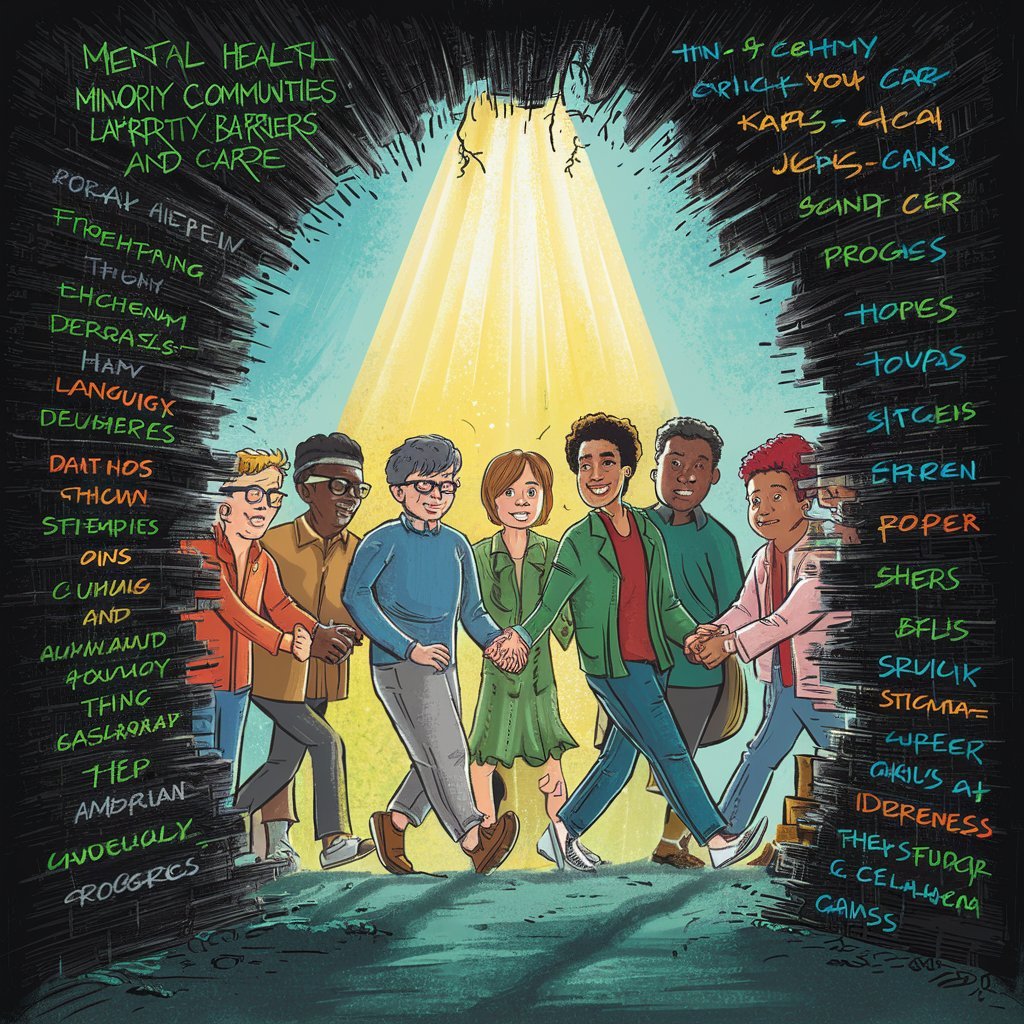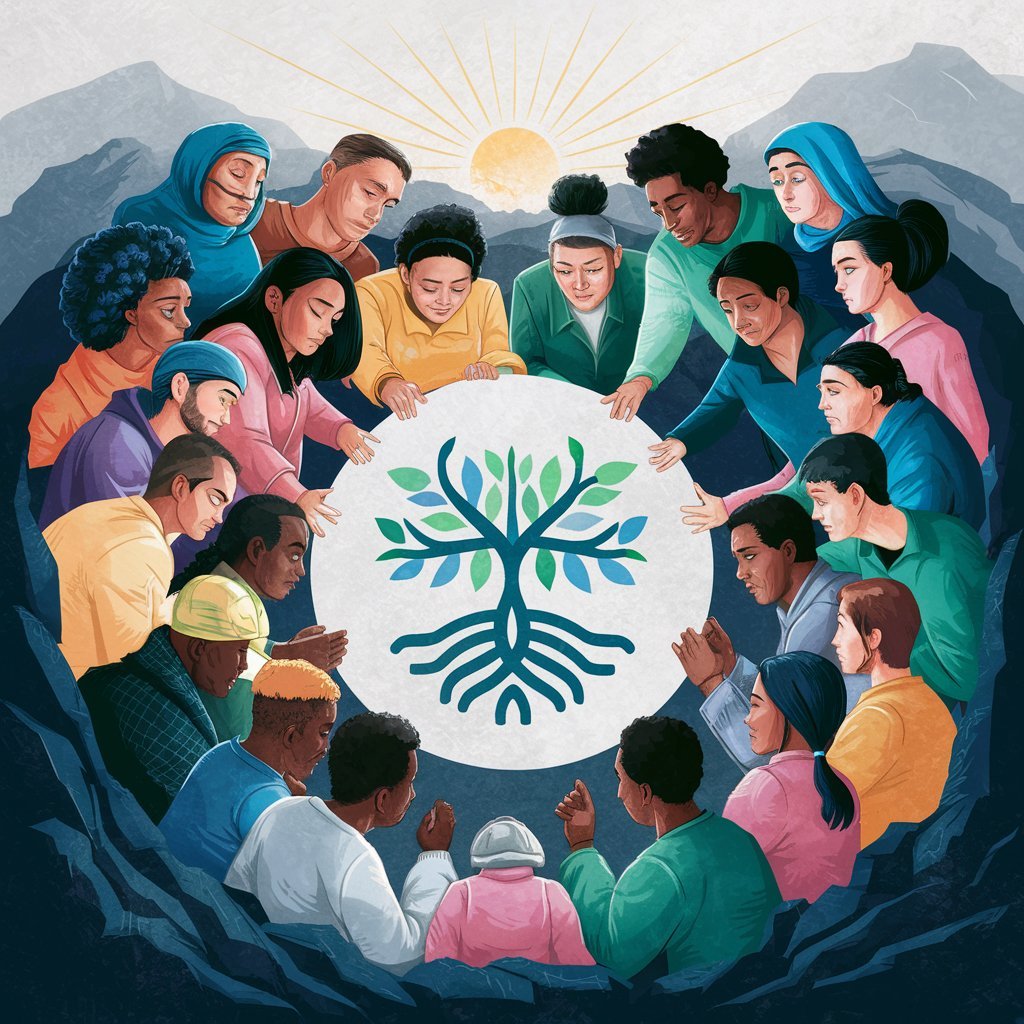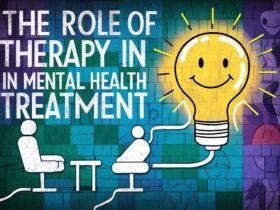Mental Health and Minority Communities: Overcoming Barriers to Care
Hey there, my young and diverse friends! It’s your mental health buddy, Nita Sharda, here to talk about a topic that’s super important for building a more inclusive and equitable world – mental health and minority communities.
Now, I know that when we think about mental health, we often think about it as something that affects everyone equally. But the truth is, there are a lot of unique challenges and barriers that minority communities face when it comes to accessing mental health care and support.
Whether it’s language barriers, cultural stigma, lack of representation in the mental health field, or systemic inequalities, minority communities often face a steeper uphill battle when it comes to getting the help they need.
But here’s the thing – mental health is a fundamental human right, and everyone deserves access to the care and support they need to thrive, regardless of their race, ethnicity, religion, or background.
So today, we’re going to dive deep into this important topic, and explore some of the ways we can work together to break down barriers and create a more inclusive and equitable mental health landscape for all.
Understanding the Unique Challenges Faced by Minority Communities
First things first, let’s talk about some of the unique challenges and barriers that minority communities face when it comes to mental health.
Language and Cultural Barriers
One of the biggest challenges is language and cultural barriers. For many minority communities, English may not be their first language, which can make it difficult to access mental health resources and communicate with providers.
Additionally, different cultures may have different beliefs and attitudes towards mental health, which can create stigma and shame around seeking help.
For example, in some Asian cultures, there is a strong emphasis on emotional restraint and saving face, which can make it hard for individuals to open up about their struggles.
In some Latinx communities, there may be a belief that mental health issues are a sign of weakness or lack of faith, which can prevent people from seeking help.
Lack of Representation in the Mental Health Field
Another big challenge is the lack of diversity and representation in the mental health field. Studies have shown that minority communities are underrepresented among mental health providers, which can make it harder for individuals to find providers who understand their unique cultural and linguistic needs.
This lack of representation can also contribute to mistrust and skepticism towards the mental health system, as individuals may feel like their experiences and perspectives are not being heard or valued.
Systemic Inequalities and Discrimination
Finally, minority communities often face systemic inequalities and discrimination that can impact their mental health and well-being.
Things like poverty, lack of access to education and healthcare, exposure to violence and trauma, and experiences of racism and discrimination can all take a toll on mental health, and create additional barriers to accessing care and support.
For example, Black Americans are more likely to experience police brutality and incarceration, which can lead to higher rates of trauma and mental health issues.
Native American communities often face high rates of poverty, substance abuse, and suicide, due in part to the legacy of colonization and forced assimilation.
And LGBTQ+ individuals, particularly those of color, may face discrimination and violence based on their identity, which can lead to higher rates of depression, anxiety, and suicidality.

Breaking Down Barriers and Creating Change
So, what can we do to break down these barriers and create a more inclusive and equitable mental health landscape for minority communities? Here are some ideas:
Increasing Diversity and Representation in the Mental Health Field
One of the most important things we can do is to increase diversity and representation in the mental health field.
This means actively recruiting and supporting mental health providers from diverse backgrounds, and ensuring that they have the training and resources they need to provide culturally competent care.
It also means creating more opportunities for minority students to enter the mental health field, through things like scholarships, mentorship programs, and pipeline initiatives.
By increasing diversity and representation in the mental health field, we can help ensure that minority communities have access to providers who understand their unique needs and experiences.
Providing Culturally Competent Care and Resources
Another key strategy is to provide culturally competent care and resources that are tailored to the needs of minority communities.
This means things like:
- Offering mental health resources in multiple languages and formats
- Incorporating cultural beliefs and practices into treatment plans
- Providing training for mental health providers on cultural competency and humility
- Collaborating with community leaders and organizations to build trust and rapport
- Developing mental health campaigns and outreach efforts that are culturally relevant and resonant
By providing care and resources that are culturally competent and responsive, we can help break down barriers and make mental health support more accessible and effective for minority communities.
Addressing Systemic Inequalities and Social Determinants of Health
Of course, we can’t just focus on the mental health system in isolation – we also need to address the broader systemic inequalities and social determinants of health that impact minority communities.
This means things like:
- Advocating for policies and programs that address poverty, lack of access to education and healthcare, and other social determinants of health
- Working to dismantle racism, discrimination, and oppression in all its forms
- Supporting community-based organizations and initiatives that promote resilience, empowerment, and social justice
- Investing in research and data collection to better understand the unique mental health needs and experiences of minority communities
By taking a holistic and intersectional approach to mental health, we can create a more just and equitable world for all.
Empowering Minority Communities to Take Charge of Their Mental Health
Finally, one of the most important things we can do is to empower minority communities to take charge of their own mental health and well-being.
This means providing education and resources on mental health, and helping individuals and communities develop the skills and strategies they need to promote resilience and well-being.
It also means creating safe and supportive spaces for minority communities to come together, share their experiences, and support one another in their healing journeys.
Some examples of community-based mental health initiatives for minority communities include:
- Peer support groups and mentorship programs
- Community healing circles and cultural ceremonies
- Mental health literacy campaigns and workshops
- Youth empowerment and leadership programs
- Arts-based therapy and expressive arts programs
By empowering minority communities to take charge of their own mental health, we can help build a culture of resilience, self-determination, and collective care.
A Call to Action for Allies and Advocates
Of course, creating change and breaking down barriers is not just the responsibility of minority communities themselves – it’s up to all of us to be allies and advocates in this work.
If you’re someone who holds privilege and power in society, whether it’s based on your race, gender, class, or other factors, it’s important to use that privilege to support and uplift minority communities in their mental health journeys.
This might mean things like:
- Educating yourself on the unique challenges and experiences of minority communities, and committing to ongoing learning and growth
- Speaking out against racism, discrimination, and oppression in all its forms, and using your voice to advocate for change
- Supporting minority-led organizations and initiatives that are working to promote mental health equity and justice
- Donating your time, resources, or skills to support mental health programs and services for minority communities
- Being a compassionate and non-judgmental listener, and creating safe and supportive spaces for minority individuals to share their stories and experiences
Remember, being an ally is not about being a savior or fixing everything – it’s about showing up with humility, compassion, and a willingness to listen and learn.
A Message of Hope and Solidarity
Before we wrap up, I want to take a moment to speak directly to any minority individuals or communities who may be struggling with their mental health right now.
I know that the challenges and barriers you face can feel overwhelming and insurmountable at times. I know that it can be hard to find the support and resources you need, or to feel like your experiences and perspectives are being heard and valued.
But I want you to know that you are not alone, and that there is hope and healing available to you.
Your mental health matters, and you deserve access to the care and support you need to thrive. You are worthy of love, respect, and dignity, no matter what your background or identity may be.
And there are so many people and communities out there who are ready and willing to support you in your journey – whether it’s a therapist who understands your cultural background, a peer support group that shares your experiences, or an advocate who is fighting for change and justice on your behalf.
So don’t be afraid to reach out for help when you need it. Don’t be afraid to lean on the strength and wisdom of your community, and to use your voice to advocate for the changes you want to see in the world.
And most importantly, don’t give up on yourself. You are resilient, you are powerful, and you have so much to offer the world.
Keep taking those small steps forward, even when it feels hard. Keep believing in your own worth and potential.













Leave a Reply